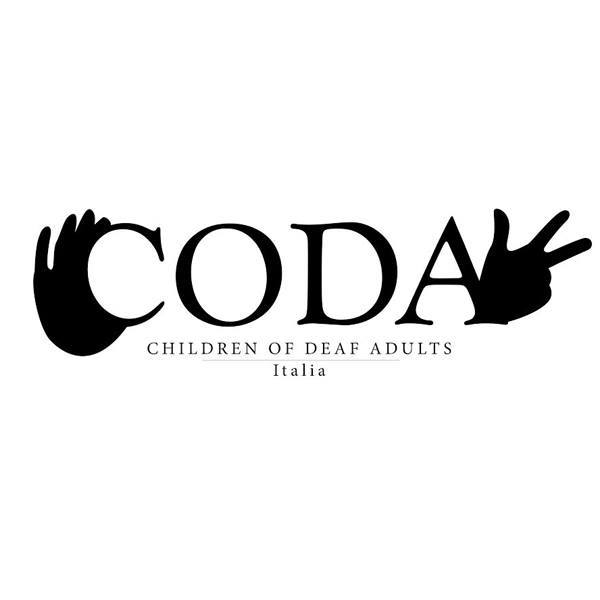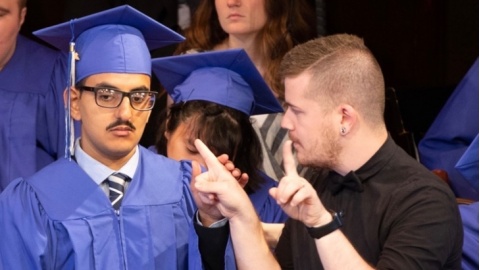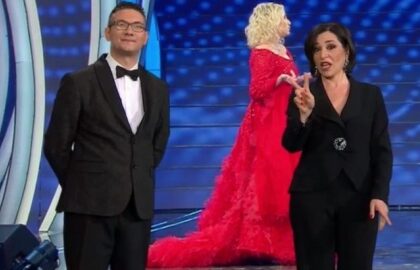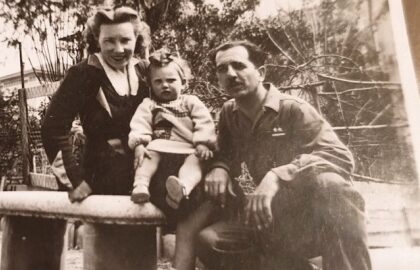Intervista a Jon Urquhart di Michele Peretti – 23/09/2020
Sign Languages are for Everyone!
Jon Urquhart is 27 years old and comes from the beautiful city of Boston, Massachusetts. He works as a full-time American Sign Language/English Interpreter.
1. What does it mean to you to be CODA?
It’s funny that this is the first question because I didn’t really understand my CODA identity until recently. I never understood what was different other than the fact I have a DeafBlind parent. It wasn’t until I became friends with other CODAs who share my same experiences that I really developed that CODA identity, and helped me understand that “No, not everyone has this experience and it’s actually super interesting!”
2. When and how did you first gain access to English?
I was exposed to English when I was very little because my mom is hearing, and my dad grew up oral so they both spoke to me when I was younger. Of course I was the product of baby sign language and still consider sign language my first language, especially because I didn’t use my voice a lot when I was a kid. I had to actually start school late because I was so shy I wouldn’t talk or look at anybody! When I first entered school I was put into speech therapy for about 5 years…not because I didn’t know how to pronounce words, I just had to learn how to interact with people using English.
3. At school, did you ever experience the feeling of being different?
I didn’t ever understand that I had a different home life compared to most, I seriously thought everyone’s doorbell had a flashing light. However, I always found myself strongly connected with the students from different countries who spoke a different language at home because I could relate to them.
4. What aspects do you appreciate, or dislike, of deaf culture?
I appreciate all aspects of Deaf culture, but if I had to say one thing I could change would be DST (Deaf Standard Time). I grew up on this, I still function on this, and I’m habitually late to everything! I had to set the clock in my car forward a few minutes to subconsciously rush myself whenever I drive anywhere.
5. Based on your own experience, which do you think are the benefits of growing up in a two-mode bilingual environment (ASL and English)?
I think it opened up my world a bit. I understood accessibility from a young age and I was able to go into school and make friends by showing a few signs here and there! I also started school at a higher reading level than most other students and I contribute that to my early language acquisition.
6. Is there an event or anecdote of your life that you would like to share with us?
My favorite saying is “squeaky wheel gets the oil”, it means if you don’t speak up, you’re never gonna get it. There are plenty of people nowadays that have a difficult time speaking up and advocating for their needs. Don’t be afraid to speak up for yourself, network the hell out of the people in your line of work! In any job, the more people you know, the easier your life will be.
7. Becoming an ASL Interpreter: vocation or duty call?
Honestly I decided to become an ASL/English interpreter very last minute. Up until my senior year of high school I wanted to become a psychologist because I thought that would be a cool career choice! Well, I took a psychology class my senior year and HATED it (I also failed haha). So I took that as a sign that I shouldn’t go to college for that. It came down to the decision “Do I go to college to learn something new, or do I go to college to master the skills I already have” so I decided to stick with majoring in American Sign Language and I haven’t regretted it a single day since!
8. How would you describe your experience at Gardner-Webb University?
It was a very eye-opening experience. I wasn’t always the best student, so when I entered the ASL program and learned that it was a 6-pt grading scale (94-100 is an A, 87-93 is a B and so on) I was nervous! The professors all complimented each other’s teaching styles, it was a difficult program, but also interpreting isn’t an easy job. Honestly, I’m so fortunate to have been surrounded by so many passionate students also studying to become interpreters, I am still friends with many of them to this day!
9. How was your passion for the performing arts born?
In 7th grade I decided to try out for the school play, it was a production of “Barbecuing Hamlet” and I was cast as the lead. Now mind you, I was still a VERY shy student so giving me the lead role might’ve not been the best decision. Luckily, I turned it out and everyone in the audience kept saying “oh my god, is that Jon? I’ve never heard him speak so much!” I then went on to join the theater program and fell in love with it!
10. Is being a performer also useful to your career as a professional interpreter?
Yes! I think my background in the theater really gives me the ability to conceptualize things in ASL and be able to interpret them efficiently. I do also transfer my skills to Tik Tok where I’ve gained over 256,000 followers. I didn’t realize people would love what I do so much but it turns out when you mix performance with being a CODA it’s fascinating!
11. Which is your preferred field of work?
I have two, I absolutely love Deafblind interpreting and I love conference interpreting. Most of my experience has been in these two fields and I love what I do.
12. Is it possible to learn a Sign Language virtually?
Yes! Actually, I run an online American Sign Language education service through my Patreon. I got the idea when I first started gaining a following on Tik Tok. There were a lot of people that followed me to “learn sign language” but I don’t teach, I prefer they learn from Deaf teachers instead. So, I put in the work and now I have a full staff of Deaf teachers that upload daily ASL lessons for our students and provide mentoring services to those that want it. Currently, we have 86 students and counting.
13. Do you ever have the chance to work along with Deaf interpreters?
Yes! Here in Boston we are so fortunate to have so many Deaf interpreters. Boston really is a great city when it comes to accessibility and our government and most businesses understand the importance of the role of the Deaf interpreter.
14. Are there, in your opinion, common aspects in both deaf and LGBT communities?
I actually never thought about that before! I guess from an inside perspective they are both welcoming communities. Both communities appreciate when people from outside the community try their best to understand their perspective.
15. What could your motto be?
“It’ll all work out”. Honestly I’ve said this for so many years and it applies to everything I do. If I’m going through a rough patch, I know I don’t have to worry because everything ends up working itself out.



